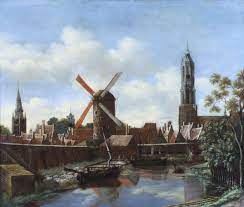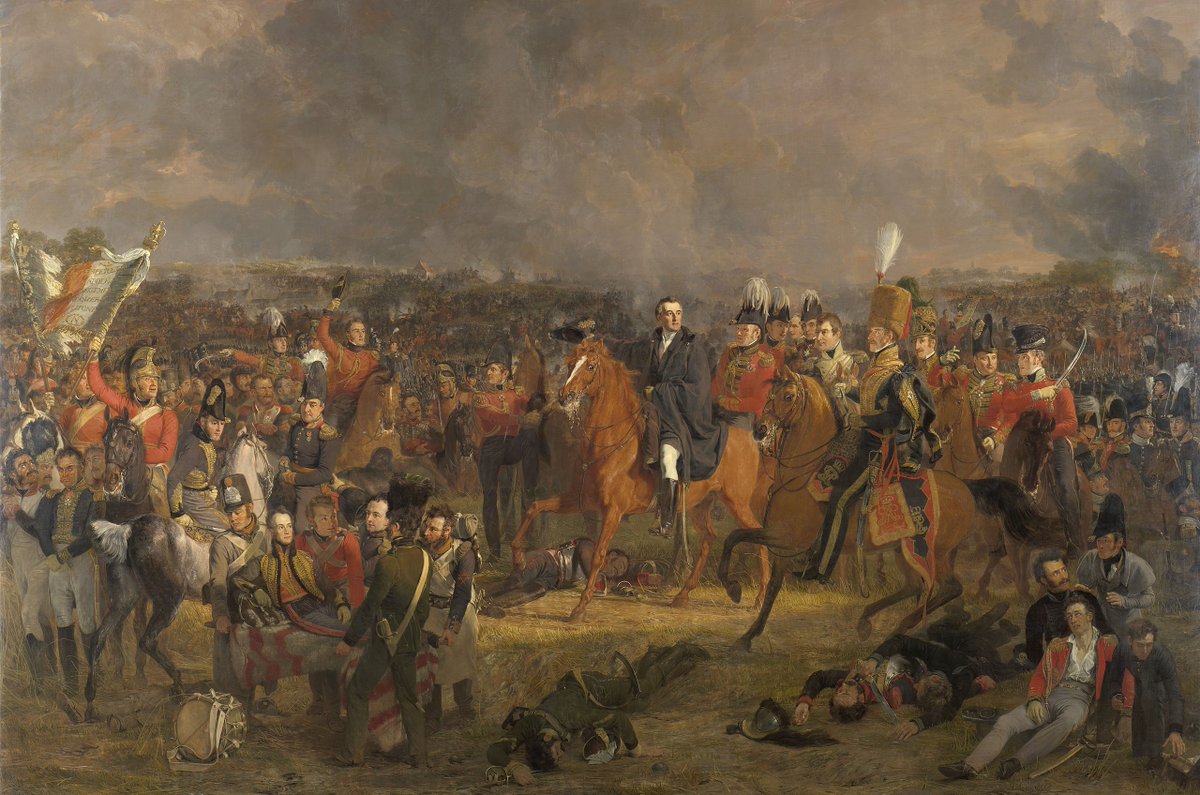
We've talked in previous posts about two key puzzles about the Industrial Revolution: one, that growth was very slow; and two, that savings rates were comparatively low. 2/
Given the spate of new technologies emerging at the end of the eighteenth century, neither should have been true. Technical change increases the returns to capital formation, so Britons should have invested, increasing output. 3/
Instead, rates of return remained high and savings low, at least until the mid-eighteenth century. Why didn't savings chase profits? 4/
Part of the answer, as I wrote recently, was the Napoleonic Wars. The British government's massive borrowing crowded out private investment, absorbing great tranches of private funds as safe public bonds. 5/ 

But there's also an extent to which the British financial system itself was poorly equipped to promote industrialization. It was great at facilitating payments and public borrowing, but was utterly incapable of and uninterested in long-term investment. 6/
This is, at first glance, paradoxical. From 1688 to 1750, the famed "Financial Revolution" had taken place in Britain, wherein Dutch financial instruments—the bill of exchange and transferrable shares in publicly-traded companies—were imported and perfected. 7/ 

Britain had founded the Bank of England in 1694; was able to raise enormous amounts of capital on deep, liquid bond markets; and hosted a thriving trade in discounting merchant bills of exchange. Making payments for commercial purposes was easier than ever before in history. 8/ 

So why didn't British high finance raise capital for the private sector? In large part, because of a series of absurd government regulations that made it difficult to do. 9/
The so-called six-partner rule, for example, was a 1707 law that prevented firms with more than six partners from issuing promissory notes (debt). 10/
This kept banks absurdly small. The average size of English country banks (outside London) was 10,000 pounds in 1800, and in 1825 their combined capitalization was HALF that of the Bank of England alone. 11/
The size constraints of English financial institutions were exacerbated by the 1720 Bubble Act, which prevented the formation of new joint-stock companies without a government charter. Banks could not issue transferable equity to increase their capital. 12/
As a consequence, English banks failed constantly, 334 collapsing between 1790 and 1826. Even if they did invest in manufacturing or mining, they often tended to take their projects down with them—the opposite of venture capital. 13/
The business model was so obviously flawed that when the Bubble Act was repealed banks converted almost immediately to joint-stock status. After a century without new incorporations, there were 33 in the next 7 years. 14/
Most damaging of all, perhaps, were the usury laws, which capped interest rates at first 6, then 5 percent. This a price ceiling in the capital market, creating a wedge between excessive demand and short supply. 15/ 

Banks were forced to ration credit, and they did so by lending to small, elite strata on repeat, mostly for consumption needs—say, for aristocrats—rather than new economic projects. The top 20 customers at Hoare's Bank received 69 percent of all loanable funds. 16/ 

All banks generally became more conservative with their lending practices and collateralized loans returned. Risk capital, which could not be priced (no way charge an unknown entrepreneur high interest), became scarce and treacherous when allotted. 17/ 

Part of the reason why small banks failed so often was because their returns could not exceed 5 percent. A modern VC firm might expect 1,000 percent to compensate for risk. 18/
In sum, banks failed to perform the "Gerschrenkronian" role of providing long-term investment in fixed capital to entrepreneurs, as was the case in France, Germany, and Belgium. 19/
Capital did seem to be scarce in Britain, too. Firms gained funds largely by reinvesting profits and by begging friends and relatives for cash. 20/
Historians like Sidney Pollard (1964) have argued—this is still orthodox thinking—that since textile machinery was cheap, Britain didn't *need* capital. But capital availability could equally well have determined the direction of innovation and technology choice. 21/
The long-run consequences of Britain's financial underdevelopment were severe. Germany and America, not Britain, would go on to pioneer the Chandler/Ford corporation, replete with rationalized production and research labs, that dominated the Second Industrial Revolution. 22/ 

If you enjoyed this thread, there's much more in my latest post: daviskedrosky.substack.com/p/what-bound-p…
• • •
Missing some Tweet in this thread? You can try to
force a refresh

















